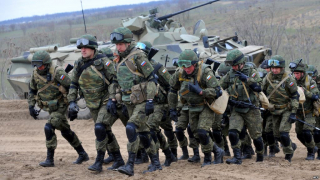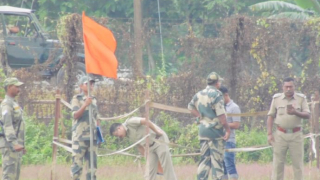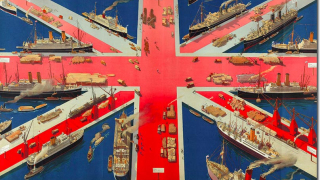Use of extrajudicial excessive force in Bangladesh
Bangladesh has a hideous history of extrajudicial killings and enforced disappearances from right after its inception. On February 8, 1972, government led by Bangabandhu Sheikh Mujibur Rahman formed “Rakkhi Bahini”, initially to fight growing insurgency inside the country, but gained notoriety for its records of extrajudicial killings and enforced disappearances. Bangladeshi journalist Ghulam Murshid equated Rakkhi Bahini’s level with the infamous Gestapo [1], while Pakistani author Anthony Mascarenhas found little differences of it with the Nazi Brown shirts [2]. Though there may be variations in the figure of extrajudicial killings or enforced disappearances, according to author Mohiuddin Ahmed, number of people either killed or got disappeared in the hands of Rakkhi Bahini was about 30,000 between 25 months of 1972 and 1974 [3]. The Rakkhi Bahini was also accused of arson and looting, enjoyed special privileges. During that time, the extrajudicial killings by them got a name: “Encounter”. Every time when Rakkhi Bahini went to arrest miscreants; there would always be some “encounters” where the targeted “miscreant” gets killed in the line of fire. Most of the people getting killed in those “encounters” were members or activists of opposition political parties.
The armaments and training of Rakkhi Bahini was sourced from India, particularly under the supervision of Major General Sujan Singh Uban from Research and Analysis Wing (RAW) [4]. The atrocities of this Rakkhi Bahini was one of the major reasons for subsequent resentment among Bangladeshi public at that time, which led to sharp fall of Bangabandhu’s popularity, paving way for the CIA to proceed with a bloody military coup against him.
After the assassination of Bangladesh’s founding leader, the country plunged in to military rule, and during the rule of General Zia and General Ershad, Bangladesh had no respite from extrajudicial killings and disappearances, the regime of Ziaur Rahman was largely notorious for military tribunals.
During his reign, Ziaur Rahman had to face more opposition from Army than his political counterparts. 17-18 coup attempts were made against him, and he was killed in the last. According to Moudud Ahmed, a former deputy prime minister under Ziaur Rahman’s government, Ziaur Rahman was “harsh, unsparing and merciless” while dealing with the coups against him [5].
One particular occasion can draw attention to the brutal nature of military tribunals under Ziaur Rahman’s regime. On September 27, 1977, a coup started against Ziaur Rahman, when his government was handling a passenger jet hijack in Dhaka airport. 12 Air force officers were killed by mutineers in the airport, who were negotiating with aircraft hijackers. Bangladesh Army moved in to culminate the coup, killing 20 mutineers in the process in the airport. The army also had to intervene in several other places the country [6].
The bloody episode angered Ziaur Rahman episode very much. As evident from the radio speech to the nation right after the coup, Ziaur Rahman’s government turned onus on several opposition political parties by banning them. By the government report alone, 1143 persons were hanged by the military tribunal for taking part in that mutiny/coup, while several hundreds of rebel soldiers were sentenced to different terms in prison, although majority of sentenced persons were presumed to be innocent [6].
Ziaur Rahman was also blamed for his role in the military trial of Col. Taher, the person who played a key role in to bringing Ziaur Rahman in national politics during the August conundrum of 1975. The trial sentenced Taher to death. Although in a conversation with Maj. Jalil, another prominent figure in politics at that time, Ziaur Rahman told that he was pressurized for the death sentence of Taher [7].
Ziaur Rahman died on May 30, 1981 in the last of the 18 coups against him. But his death rather ironically brought another episode of a controversial military tribunal, where 18 officers were accused of the President’s murder, 13 were sentenced to death while 5 others were sentenced to varying terms in prison. The army prosecutors, who were appointed to defend these 13 suspected officers later called the trial a 'farcical trial' as they all were denied the minimal opportunity to defend. Right after the killing, General Manzur, a decorated freedom fighter was accused of leading the coup, and then Army Chief of Staff General Ershad ordered his suppression. General Manzur surrendered to the Police. But he was forcefully picked up by Army from Police custody and based on an autopsy report General Manzur was killed via a gunshot to the back of the head – added to the mystery. General Ershad is an accused in his murder case, trial of which is still under process. The trial of Ziaur Rahman murder case in military tribunal deliberately targeted freedom fighter officers, showing the existing rift between repatriated army officers from Pakistan and freedom fighter officers. Several anomalies were revealed in the trial proceedings later on.
After a brief period of civilian government, Bangladesh again plunged in to the hand of military dictatorship, this time General Ershad taking over. His regime brought in its train a plethora of excessive force and brutal crackdown of opposition voices. The police was deployed by the government to crack down on the opposition political parties, leading to several deaths and arrests. On a particular incident in Chittagong, the second largest city of Bangladesh in 1988, the then Chittagong Police Commissioner instructed cops to shoot on a procession of an opposition political party. 24 people were killed by Police in that incident. The protests against Ershad took a rough turn after a 1986 general election, which according to the major opposition political parties was rigged. And after the killing of 6 people during anti-government protests, Ershad declared to go tough on the protesters. Besides using police and paramilitary forces, Ershad regime used armed goons and thugs to deter anti-government protests. The use of goons led to killings of prominent intellectuals during the protests, which further fuelled the anti-government protests. After bloodied protests during November in 1990, Ershad fell from the government on December 6, 1990 [8].
After the democratic transition in 1991, Bangladeshi people expected for the fulfillment of the establishment of rule of law. But subsequent governments’ actions proved otherwise, which were simply a mockery for rule of law and a clear violation of very Constitution of Bangladesh, that says under Article 32: “no person shall be deprived of life or personal liberty, save in accordance with law”.
During the period of October 2002 to January 2003, the then Bangladesh government tasked the armed forces with an anti-crime operation. Before the ending of operation, about 4500 people were arrested, about 3000 people were injured and about 60 people died in custody of law enforcement agencies, and when the operation finally ended, the government issued an ordinance, which provided complete impunity for armed forces and law enforcement agencies for their activities during that period.
But in 2003, the perspective of extra-judicial killing got a new dimension with the formation of RAB (Rapid Action Battalion), and the word “Crossfire” comes into prominence in Bangladesh.
RAB was formed to crack down on the spiraling crime rate in Bangladesh during its formation. Mass people hailed its birth, cheered its every notable captures, particularly of some notorious militant leaders and mafia ring leaders. Riding the popular wave, RAB often took part in gunfights, where allegedly captive criminals “died” in action, or while fleeing. According to an HRW report, “AB's popularity is high because many believe it has helped reduce crime, even if Bangladeshis know the force is killing suspects rather than making arrests. In some areas local residents have greeted the RAB "crossfire" killing of a local thug with cheers, believing that the police and courts cannot or will not-often because of corruption-take the necessary steps.” At least 350 people were killed in RAB custody between 2004 and 2006, mostly in “crossfires”; while died due alleged tortures in custody.
Besides most of the dead victims in the hand of RAB’s “crossfires” may have committed crimes, some were partly motivated by political vendetta. In April 2006, the then parliamentary adviser of the then Prime Minister of Bangladesh mockingly warned opposition party men to follow “right path”, as their names were in “crossfire” list [9].
Exits BNP, enters AL, yet the killings never recede, rather the color changes.
Despite pledging to show “zero tolerance” to extrajudicial killings in the election manifesto back in 2008, the incumbent Bangladeshi government has failed to keep its words; rather made the scenario from bad to worst. Human rights organizations in Bangladesh has claimed that since the inception of present Awami League government in 2009, more than 1,300 alleged extrajudicial killings and 325 enforced disappearances have taken place. The list consists from petty criminals, labor union leader, opposition party leaders and activists and militants/extremists.
Alongside the crossfires, events of enforced disappearances are on the rise. More alarmingly, the victims are notable politicians and activists. The events of disappearance of a former lawmaker of BNP in 2012 and the then joint secretary general of BNP in 2015 raised attention worldwide. Though the former lawmaker remains traceless until now, the joint secretary general found himself abandoned in neighboring country of India. In February 2017, a UN group criticized the Bangladeshi government’s handling of disappearance three sons of opposition leaders it says were kidnapped six months ago (at that time), while sounding a warning on rising enforced disappearances. In March 2017, UN in a report blasted the Bangladeshi government for its failure to stem the “high rate” of extrajudicial killings, enforced disappearances, and excessive force. The law enforcement agencies often detain people for longer period of time in secret, only to produce them before court after certain events, and according to some family members of many victims, their near ones never returns to them.
The emerged situations relating to such disappearance sounds eerily similar to that of Farhad Mazhar.
If not these, the gruesome story of 7 murders in a city near capital Dhaka shook Bangladeshi public sentiment tremendously. The news shook the credibility of RAB as a pro-people law enforcement agency to the core, where 3 commanding officers of an elite crime busting agency took bribe from a local mafia to act as paid hitmen.
During the tumultuous period of the controversial national election in 2014, several incidents of extrajudicial killings took place, the victims being opposition party activists. Azharul Islam, a leader of the student wing of an opposition party in Satkhira district, was killed on January 27, 2014. According to Police statement, he died in crossfire while he was escorting the police to an opposition “hideout.” Two other activists of an opposition party in same district died under similar circumstances. Witness reports of nefarious tortures during that period paint a repugnant picture of law enforcement agencies of Bangladesh.
The latest intent of Bangladeshi political party in power to use law enforcement agencies for accomplishing political goals and vendetta was revealed by an incumbent member of parliament in an interview with a Bangladeshi daily. He acknowledged to hand over 5 persons to law enforcement agencies for “crossfire”, and listed 14 more to hand them over later.
The incredulous story behind every “crossfires” was revealed in an interview by a top RAB official. According to the interview, “The high-ranking officer tells how the police take bribes from criminals. They use the money to buy weapons to plant next to the people they kill. People seldom had weapons from the beginning. Planting evidence provides a motive for the killing, that the elite police force acted in self-defense, he explains.”
Day after day, the controversy lingers, government changes, but the story never changes, albeit the name, the time and the place. What is alarming is that the government, being more authoritarian in nature, becomes more and more intolerant to opposition voices, and becomes less and less respectful to human rights. When will the narrative reverse? Nobody knows.
References:
1. Muktiyuddha o tārapara: ekaṭi nirdalīẏa itihās মুক্তিযুদ্ধ ও তারপর একটি নির্দলীয় ইতিহাস. Dhaka: Prothoma Prakashani. p. 199.
2. Bangladesh: A Legacy of Blood. London: Hodder and Stoughton. p. 37.
3. Jasader Utthan Poton: Osthir Somoyer Rajneeti জাসদের উত্থান পতন: অস্থির সময়ের রাজনীতি. Prothoma Prokashan. P. 139
4. মুক্তিযুদ্ধের পূর্বাপর : কথোপকথন [War Context: Conversation], Prathama Prakasana.
5. Chaloman Itihas (2010), UPL, Dhaka, P. 486
6. Bangladesh: A Legacy of Blood. London: Hodder and Stoughton.
7. Jasader Utthan Poton: Osthir Somoyer Rajneeti জাসদের উত্থান পতন: অস্থির সময়ের রাজনীতি. Prothoma Prokashan. P. 239
8. Asia's Unknown Uprisings: People power in the Philippines, Burma, Tibet, China, Taiwan, Bangladesh, Nepal, Thailand, and Indonesia, 1947-2009, Volume 2, P. 275
9. "You Are on RAB's 'Crossfire' List, Follow the Right Path: Saka Chouwdhury," Prothom Alo (Dhaka), May 1, 2006.









